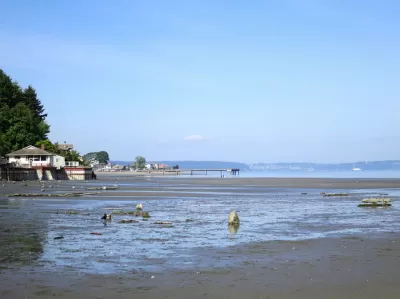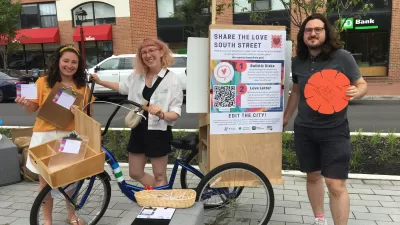The editors of the Tacoma Weekly speculate that someday governments might uphold their agreements. They don't expect the Tacoma Tideland sub area plan to be one of those times.

The Tacoma Weekly has printed a strongly worded editorial denouncing the engagement process for a new sub area plan for the Tacoma Tideflats. The editorial sets the stage:
The largest battle in the works on the waterfront pits the City of Tacoma against the Port of Tacoma over who will sit at the table during the creation of a sub area plan for the largely industrialized waterfront that not only is an economic engine of the region, but also a toxic sandbox caused by the industrialization of that very same land over the passing decades of unchecked capitalism and poor decision making in the name of “progress.”
The editorial's concern grows from efforts by the port to cut members of the Puyallup Tribe out of the planning process. According to the editorial, "a 1989-1990 land claim settlement between the city, the Port and the Puyallups requires that any discussion about developments or decisions regarding the Tideflats must include meaningful consultation with the tribe."
Yet, the "Port of Tacoma now wants to relegate that 'meaningful consultation' with the tribe to simply putting them among the ranks of business owners and commerce boosters with interests in growing the Tideflats. Such neglect of the tribe could put the whole process in "legal limbo," argues the editorial.
Environmental groups in the area are supporting a greater role for the tribe, and the big takeaway produced by the editorial is less than favorable about how much faith interest groups should put in the commitments made by government.
FULL STORY: Our view: When an agreement isn’t an agreement

Maui's Vacation Rental Debate Turns Ugly
Verbal attacks, misinformation campaigns and fistfights plague a high-stakes debate to convert thousands of vacation rentals into long-term housing.

Planetizen Federal Action Tracker
A weekly monitor of how Trump’s orders and actions are impacting planners and planning in America.

In Urban Planning, AI Prompting Could be the New Design Thinking
Creativity has long been key to great urban design. What if we see AI as our new creative partner?

King County Supportive Housing Program Offers Hope for Unhoused Residents
The county is taking a ‘Housing First’ approach that prioritizes getting people into housing, then offering wraparound supportive services.

Researchers Use AI to Get Clearer Picture of US Housing
Analysts are using artificial intelligence to supercharge their research by allowing them to comb through data faster. Though these AI tools can be error prone, they save time and housing researchers are optimistic about the future.

Making Shared Micromobility More Inclusive
Cities and shared mobility system operators can do more to include people with disabilities in planning and operations, per a new report.
Urban Design for Planners 1: Software Tools
This six-course series explores essential urban design concepts using open source software and equips planners with the tools they need to participate fully in the urban design process.
Planning for Universal Design
Learn the tools for implementing Universal Design in planning regulations.
planning NEXT
Appalachian Highlands Housing Partners
Mpact (founded as Rail~Volution)
City of Camden Redevelopment Agency
City of Astoria
City of Portland
City of Laramie





























